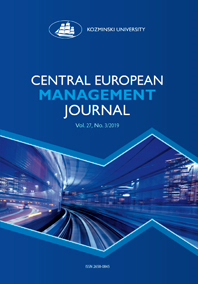Mediating Effect of Work Self-Efficacy on the Relationship Between Psychosocial Safety Climate and Workplace Safety Behaviors Among Bank Employees After Covid-19 Lockdown
Mediating Effect of Work Self-Efficacy on the Relationship Between Psychosocial Safety Climate and Workplace Safety Behaviors Among Bank Employees After Covid-19 Lockdown
Author(s): Abimbola A. Akanni, Chris O. Ajila, Idowu Omisile, Kelechi NdubuezeSubject(s): National Economy, Socio-Economic Research
Published by: Akademia Leona Koźmińskiego
Keywords: bank-workers; COVID-19; psychosocial safety climate; workplace safety behavior; work self-efficacy
Summary/Abstract: Purpose: Studies find that psychosocial safety climate is positively associated with workplace safety behaviors. However, the mechanism through which psychosocial safety climate exerts its effect needs further investigation. Therefore, this study investigated the indirect effect of work self-efficacy in the relationship between psychosocial safety climate and workplace safety behaviors. Methodology: Participants, who were 155 bank workers (F=66.5%; mean age= 33.9, SD=6.4), responded to an online survey of workplace safety behavior scale (WSBS), psychosocial safety climate scale (PSC-12), and work self-efficacy scale (WSES). Results: Results from correlational analyses revealed that psychosocial safety climate positively related to workplace safety behaviors. Moreover, work self-efficacy positively correlated to workplace safety behaviors. The mediation analysis using Hayes Process Macros indicated an indirect effect of work self-efficacy in the relationship between psychosocial safety climate and workplace safety behaviors. Creating a psychosocially safe climate may enhance bank workers’ safety behaviors in the period after the Covid-19 pandemic.
Journal: Central European Management Journal
- Issue Year: 29/2021
- Issue No: 1
- Page Range: 2-13
- Page Count: 12
- Language: English

